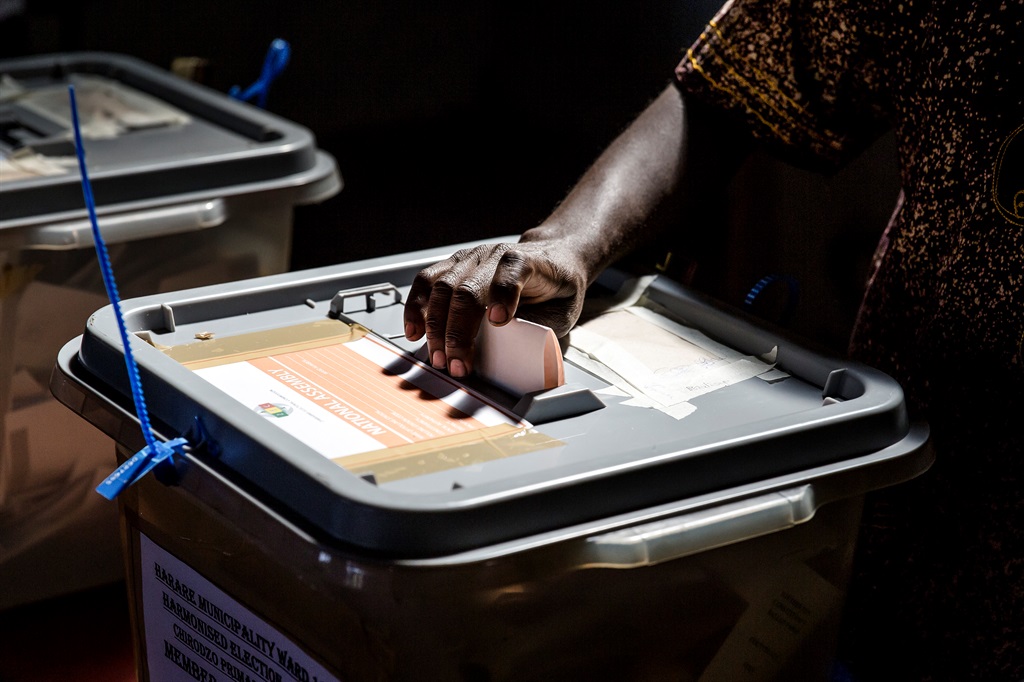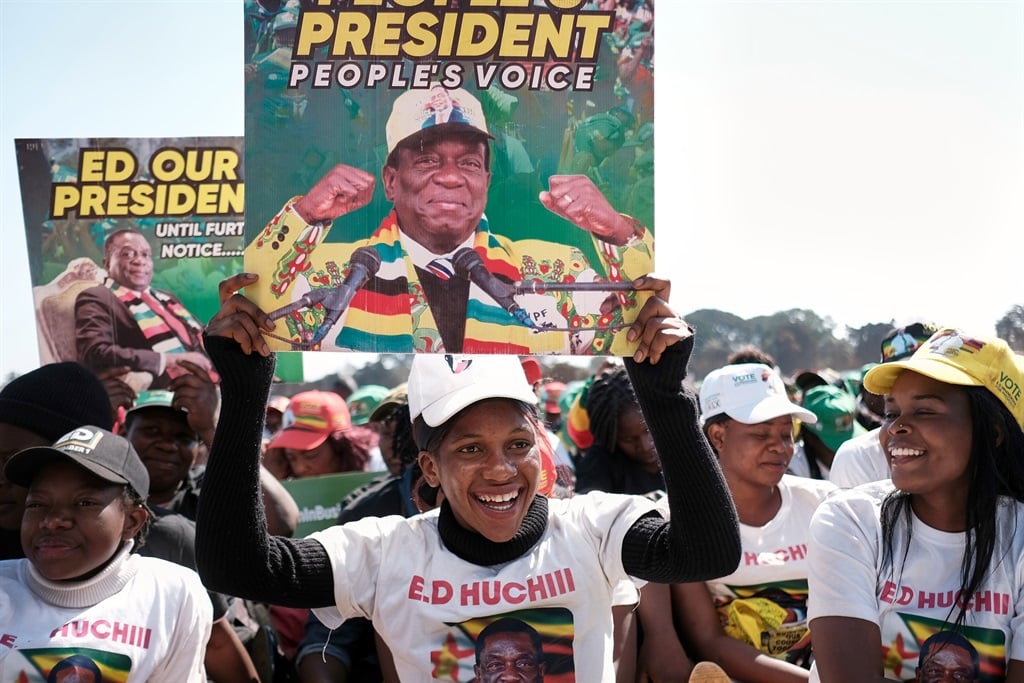
Postal ballots are reserved for citizens working at embassies abroad, police, the army, and healthcare workers, who carry out essential services.
Numerous election-related court cases, some of which have not yet been resolved, delayed the printing of ballot papers and postal voting.
The Zimbabwe Electoral Commission (ZEC) was hard-pressed to avail time for postal voting in the government gazette, so it enacted Statutory Instrument 140A of 2023 last week to amend the Electoral Act.
Lawyers argued that it was illegal and even mounted court challenges that were later thrown out.
It wasn’t until marked ballot papers from police voters in Mutare and Rusape in Manicaland were leaked on social media that people were made aware of the voting.
Using his X account, the social media platform formerly known as Twitter, Citizens Coalition For Change (CCC) lawyer Thabani Mpofu urged police to vote without fear because there was no way to victimise them.
He said:
CCC spokesperson Fadzayi Mahere said: “Our agents and independent observers have not been allowed to monitor the process. Where is the transparency?”
A discredited electoral body
With ballot paper designs in the public domain, it has emerged that independent candidate Saviour Kasukuwere, who exhausted all attempts to be included in the presidential vote, is not one of the 11 candidates.
Meanwhile, MDC T leader Douglas Mwonzora is on the ballot paper, despite claims that he was stepping out of the presidential race.
Last week, Mwonzora said he was pulling out of the race, claiming that it was not going to be a free and fair election after 87 of his parliamentary candidates were disqualified.
Mwonzora also told journalists that he had spoken to President Emmerson Mnangagwa about his predicament but that the latter didn’t take action.
In response, the ZEC said it was impossible to exclude Mwonzora because the 21-day period for withdrawals had passed.
However, Mwonzora hit back, saying he had notified ZEC on 2 August.
The ZEC didn’t provide stakeholders such as political parties and observers with details of where the ballot papers were printed and by whom.
There are fears that the secrecy around that and the number of ballot papers printed could be a recipe for electoral fraud.
This violates Section 52A(2) of the Electoral Act, which stipulates that the electoral body must make public information about the printing of ballot papers.
Professor Jonathan Moyo, a former cabinet minister under the late Robert Mugabe and a public administration academic, said on X that the ZEC’s conduct was “a gross illegality whose impact can only dent the integrity and credibility of the election, rendering it neither free nor fair.”
Countdown
There have been cases of political violence and the defacing of rivals’ campaign posters.
On Tuesday, police said they had arrested 40 CCC supporters in Harare for contravening the Maintenance of Order and Peace Act. Some CCC billboards and posters in parts of the country were found to be vandalised at night.
The CCC procession was on its way to a rally at Churu Farm, but on the way there, they made a car rally procession through some suburbs, disturbing others.
“A concerned citizen made an official report to the police,” said police spokesperson, senior assistant Paul Nyathi.
The Zimbabwe Peace Project (ZPP) said members of Kasukuwere’s campaign team conducting a community outreach exercise for aspiring local authority candidate Wendy Chiriri were assaulted by a group of Zanu PF youth activists clad in party regalia.
In response, Kasukuwere said no one had to die or be injured in their quest for democracy.
He said:
Former Liberian president Ellen Johnson Sirleaf’s Presidential Centre for Women and Development said in a statement that “these violations are against the African Union (AU) and Zimbabwean normative frameworks for electoral integrity”.
It’s a winner-takes-all election. The presidential winner must have at least 50% plus one vote. Failure to achieve this will lead to a presidential run-off on 2 October.
For parliamentary and council elections, the one who has the most votes will be declared the winner.
International observers arrive
Heads of numerous observer missions accredited to Zimbabwe have started arriving in the country.
According to the Ministry of Foreign Affairs, a SADC Election Observer Mission led by Zambian Nevers Mumba arrived on Tuesday.
The Commonwealth Election Observer Mission, led by Nigerian Amina Mohammed, was also expected on Wednesday, as well as former Mozambican president Joaquim Chissano.
Chissano has been helping Zimbabwe restructure its international debt with the African Development Bank (AFDB).
One of the key requirements of the AFDB is a free and fair election.
The head of the African Union and Comesa Elections Observer Mission, former Nigerian President Goodluck Jonathan, is expected to arrive on Saturday.
Member of the AU Panel of the Wise, former Burundian president Domitien Ndayizeye, arrives on Monday.
Meanwhile, the state-run Herald newspaper ran a story claiming that the Carter Centre and Ellen Johnson Sirleaf Presidential Centre for Women and Development were “pro-opposition” groups disguised as election observers.



